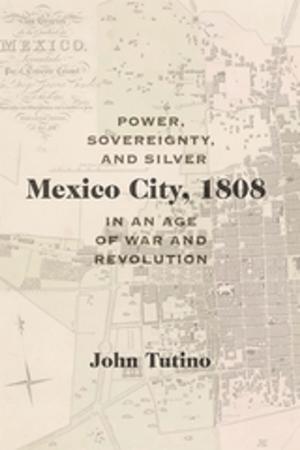All Aboard for Santa Fe
Railway Promotion of the Southwest, 1890s to 1930s
Business & Finance, Industries & Professions, Hospitality, Tourism & Travel| Author: | Victoria E. Dye | ISBN: | 9780826336590 |
| Publisher: | University of New Mexico Press | Publication: | April 25, 2016 |
| Imprint: | University of New Mexico Press | Language: | English |
| Author: | Victoria E. Dye |
| ISBN: | 9780826336590 |
| Publisher: | University of New Mexico Press |
| Publication: | April 25, 2016 |
| Imprint: | University of New Mexico Press |
| Language: | English |
By the late 1800s, the major mode of transportation for travelers to the Southwest was by rail. In 1878, the Atchison, Topeka, and Santa Fe Railway Company (AT&SF) became the first railroad to enter New Mexico, and by the late 1890s it controlled more than half of the track-miles in the Territory. The company wielded tremendous power in New Mexico, and soon made tourism an important facet of its financial enterprise.
All Aboard for Santa Fe focuses on the AT&SF's marketing efforts to highlight Santa Fe as an ideal tourism destination. The company marketed the healthful benefits of the area's dry desert air, a strong selling point for eastern city-dwelling tuberculosis sufferers. AT&SF also joined forces with the Fred Harvey Company, owner of numerous hotels and restaurants along the rail line, to promote Santa Fe. Together, they developed materials emphasizing Santa Fe's Indian and Hispanic cultures, promoting artists from the area's art colonies, and created the Indian Detours sightseeing tours.
All Aboard for Santa Fe is a comprehensive study of AT&SF's early involvement in the establishment of western tourism and the mystique of Santa Fe.
By the late 1800s, the major mode of transportation for travelers to the Southwest was by rail. In 1878, the Atchison, Topeka, and Santa Fe Railway Company (AT&SF) became the first railroad to enter New Mexico, and by the late 1890s it controlled more than half of the track-miles in the Territory. The company wielded tremendous power in New Mexico, and soon made tourism an important facet of its financial enterprise.
All Aboard for Santa Fe focuses on the AT&SF's marketing efforts to highlight Santa Fe as an ideal tourism destination. The company marketed the healthful benefits of the area's dry desert air, a strong selling point for eastern city-dwelling tuberculosis sufferers. AT&SF also joined forces with the Fred Harvey Company, owner of numerous hotels and restaurants along the rail line, to promote Santa Fe. Together, they developed materials emphasizing Santa Fe's Indian and Hispanic cultures, promoting artists from the area's art colonies, and created the Indian Detours sightseeing tours.
All Aboard for Santa Fe is a comprehensive study of AT&SF's early involvement in the establishment of western tourism and the mystique of Santa Fe.















